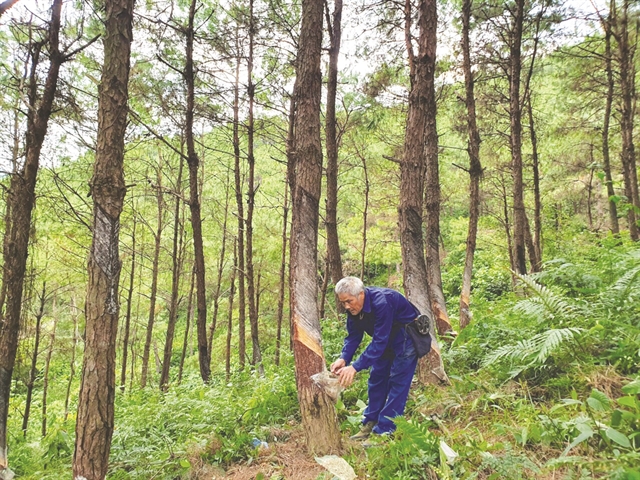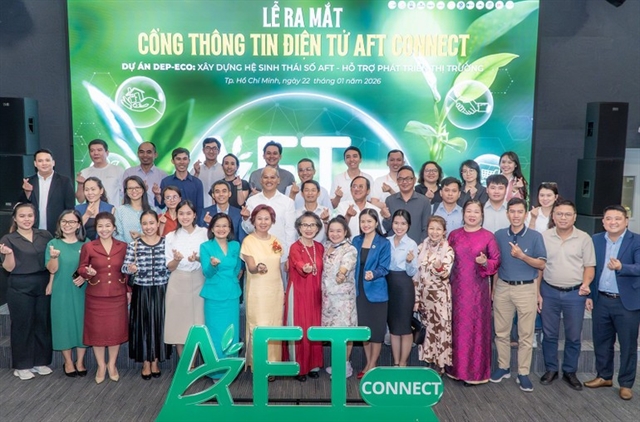 Economy
Economy


|
| Rubber farming facilities should focus on obtaining sustainability certificates to increase added value, experts have said. – Photo baodantoc.vn |
HCM CITY – Sustainable latex production is important for Việt Nam’s rubber industry, and the country should focus on getting rubber plantations to obtain certifications on sustainability, experts have said.
Võ Hoàng An, deputy chairman and general secretary of the Việt Nam Rubber Association, said Việt Nam produces around 1.1 million tonnes of natural rubber every year, with 60 per cent coming from small farming households, and imports another half a million tonnes from Cambodia and Laos annually.
Việt Nam is the third largest exporter of natural rubber in the world, with around 80 per cent of its output exported and China being the biggest buyer.
The remaining 20 per cent is used for making products such as tyres, shoe soles and sport equipment.
An said in recent years global demand has been shifting towards sustainable, environment-friendly rubber products. Products that are certified as sustainable could bring higher added value and enter more markets around the world, he added.
Nguyễn Vinh Quang, a research associate at Forest Trends Việt Nam (a non-profit focusing on conserving eco-systems) said most of the rubber collection occurs via traders who connect households with processing companies.
Most of the output is from small farming areas without certification for sustainability, which makes their added value limited. Sustainable rubber farming is still a relatively new idea for most households.
The Việt Nam Rubber Association is working to develop a Việt Nam rubber brand, provide guidelines for sustainable natural rubber production and ensure international co-operation and trade.
Dr Tô Xuân Phúc, senior analyst at Forest Trends in Australia, said there are many international standards for sustainability, several of which are easy to obtain for Việt Nam’s rubber industry.
So strategies to develop the rubber industry sustainably should start with easier standards and ones that receive greater priority in global markets, and gradually move up to the harder ones, he said.
Both large companies and small farming households need to contribute to the industry’s sustainable development, he added.
Huỳnh Nhật Tân, deputy head of business at Liên Anh Rubber Company, said companies need to help rubber farmers understand the importance and benefits of complying with standards and help farmers with initial investment and by buying their produce.
Nearly one million hectares around the country are planted with rubber trees, and around 70 per cent of them are available for tapping latex. – VNS




